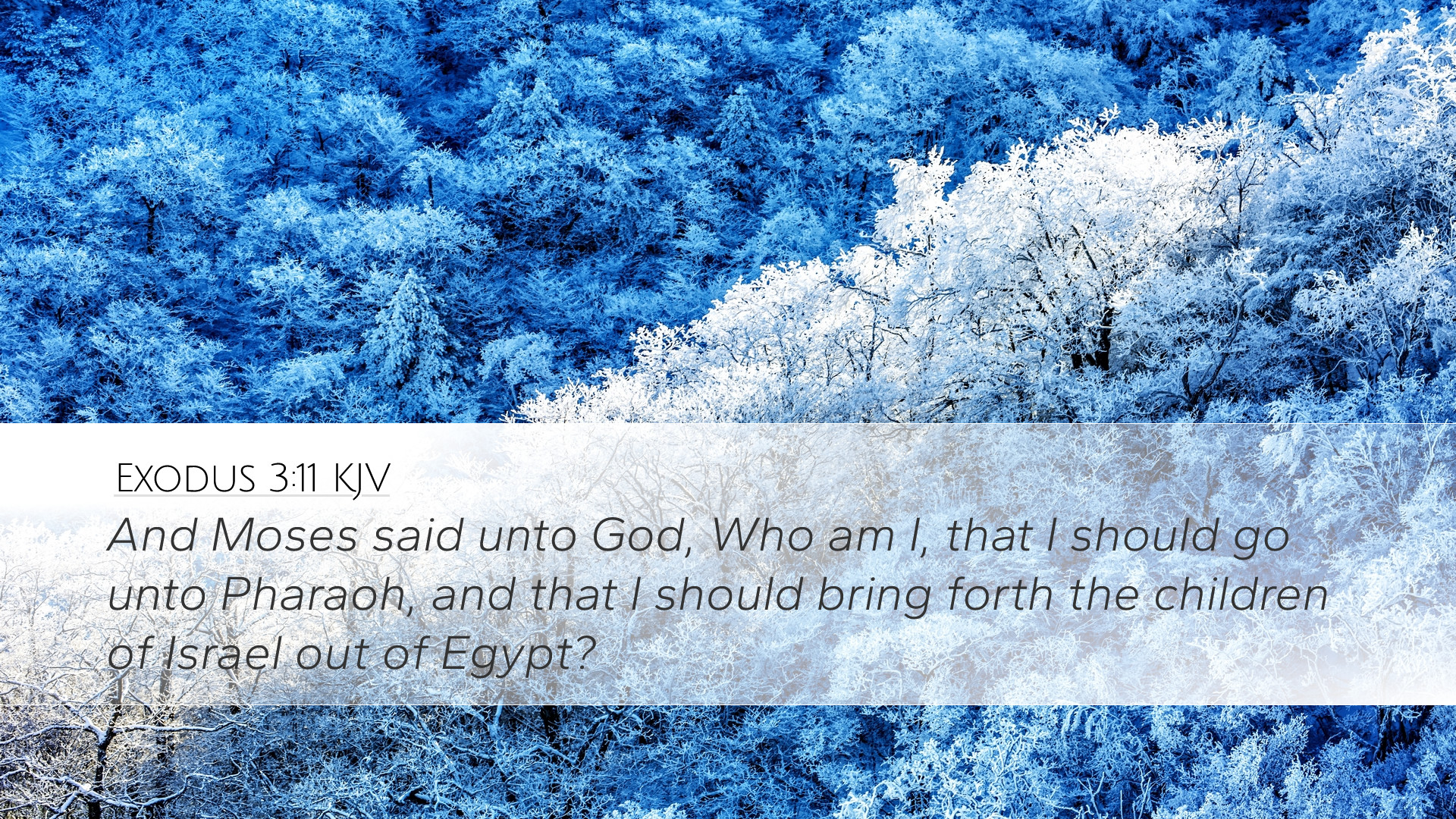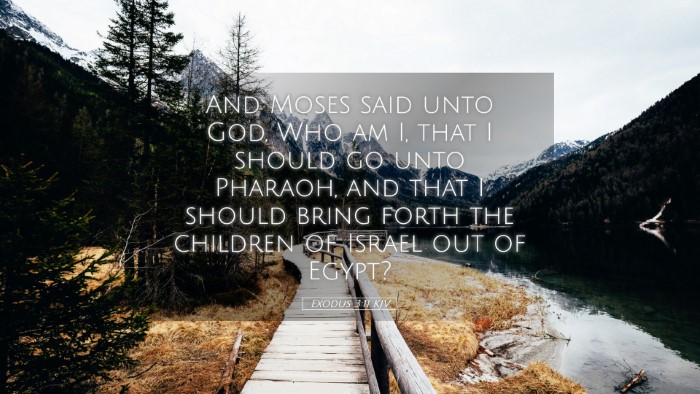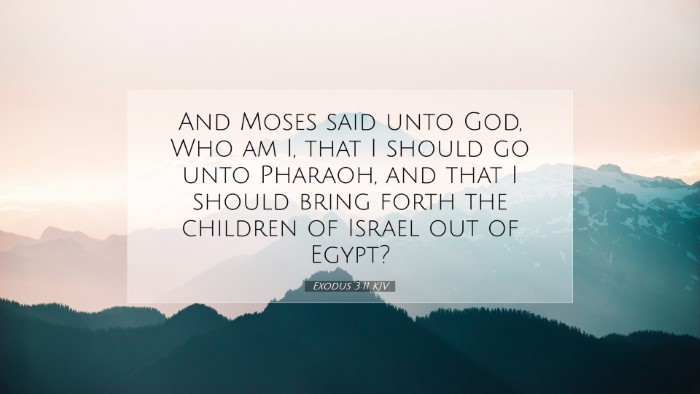Commentary on Exodus 3:11
Verse: "But Moses said to God, 'Who am I that I should go to Pharaoh, and that I should bring the children of Israel out of Egypt?'" (Exodus 3:11)
Introduction
This pivotal verse marks a significant point in Moses' call by God to lead the Israelites out of bondage in Egypt. It encapsulates Moses' initial reluctance and sense of inadequacy. Understanding his hesitations can provide profound insights for modern pastors, theologians, and students as they delve into themes of calling, identity, and divine empowerment.
The Context of Exodus 3
Exodus 3 describes God's revelation to Moses through the burning bush, a profound theophany that signifies God's holiness and His commitment to deliver His people. The broader context illustrates the distress of the Israelites and God's timely intervention. Moses' questioning of his own qualifications highlights a human response to a divine calling, a dynamic present throughout Scripture.
Moses' Questioning of His Identity
Moses' inquiry, "Who am I?" reflects a key theme of self-doubt. This is not merely a question of personal identity but one of perceived capability and preparation for the immense task ahead. Several commentaries provide clarity on his mindset:
- Matthew Henry: Henry emphasizes that Moses' hesitation symbolizes the common struggle individuals face when confronted with God's calling. He notes that this query reflects the humility that precedes effective leadership.
- Albert Barnes: Barnes points out that such self-deprecation demonstrates an awareness of personal limitations. He suggests that Moses' uncertainty mirrors the feelings of many who are chosen for God's work, underlining the importance of divine support.
- Adam Clarke: Clarke elaborates on this theme, suggesting that Moses' past mistakes and his identity as a fugitive contribute to his sense of unworthiness. Clarke highlights that Moses is not simply doubtful of his role but is also haunted by his past failures.
The Nature of Divine Calling
The question posed by Moses, “Who am I?” aligns with a broader theological understanding of divine calling. God's response to Moses immediately refocuses the attention from Moses’ inadequacies to God’s sovereignty and power.
- God’s Affirmation: This moment illustrates that God's selection of leaders is not based on human merit but on divine purpose. The assurance that "I will be with you" underscores God’s commitment to empowering those whom He calls.
- Role of Faith: This exchange between Moses and God accentuates the necessity of faith in undertaking God’s work. It serves as a reminder for believers today that the effectiveness of ministry derives not from personal capability but from reliance on God's strength.
Theological Implications
Moses' self-doubt is emblematic of a larger theological framework seen throughout scripture, where God chooses the imperfect and inadequate to fulfill His purposes.
- Illustration of Grace: The choice of an unqualified leader illustrates God's grace, an unmerited favor that characterizes His call. This reinforces a gospel narrative where God equips the called rather than calls the equipped.
- Empowerment Through Weakness: The prophetic pattern found in Scripture affirms that God's power is made perfect in weakness (2 Corinthians 12:9). Moses' hesitance stands as a foundational example of how God utilizes human frailty for divine ends.
Application for Today
The exploration of Exodus 3:11 offers valuable lessons for contemporary church leaders and scholars:
- Embrace Humility: Like Moses, leaders should recognize their limitations while understanding that God's call may transcend their apparent qualms. This humility can fuel a reliance on God that brings forth deeper ministry effectiveness.
- Seeking God’s Presence: The assurance of God's presence in calling should resonate with modern believers, encouraging them to engage in their assigned tasks with the confidence that they are not alone.
- Recognizing Divine Preparation: The acknowledgment of past shortcomings should not deter leaders from stepping into their vocational calls. As exemplified by Moses, a sense of unworthiness can lead to greater reliance on divine guidance and strength.
Conclusion
Exodus 3:11, through the simplistic yet profound question of Moses, challenges us to explore our own identities in light of God's calling. The commentaries by Henry, Barnes, and Clarke illuminate this discourse with a robust understanding of leadership, divine assurance, and the dynamics of faith. As we reflect on this verse, we are reminded that God's purposes often unfold through those who feel least equipped, thereby magnifying His glory.


